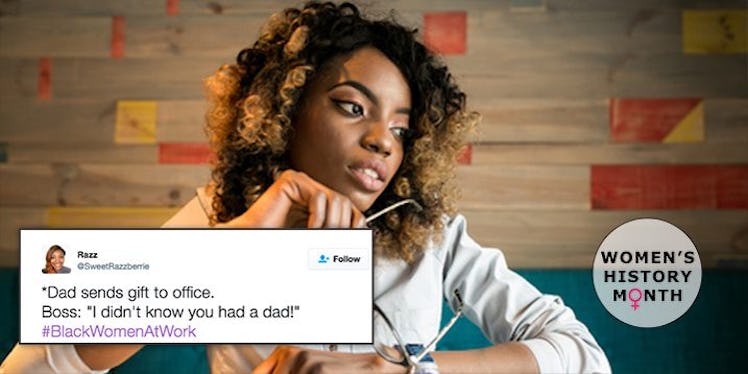
Black Women Tweet About Racism In The Office, And Their Stories Are Awful
On Tuesday, Bill O'Reilly cracked a distasteful (read: racist AF) joke about Congresswoman Maxine Waters during a Fox News segment.
His comment — comparing Waters' hair to a James Brown wig— seemed like an attempt to undermine her speech in Washington, DC on patriotism.
O'Reilly delivered a questionable apology on the air, but black women on Twitter still weren't here for the disrespect.
On the same day, White House correspondent for Urban Radio Networks, April Ryan, was told to "stop shaking your head" by White House Press Secretary Sean Spicer.
Ryan is the same reporter who Donald Trump assumed would organize a meeting for him (aka, not her job) with the Congressional Black Caucus just months earlier.
Black women recognized these interactions between two professional black women trying to do their jobs and white male figures as the same undermining BS they deal with on a daily basis.
Campaign Zero founder, Brittany Packnett, said as much via Twitter.
Her hashtag "Black Women At Work" immediately caught fire. Black women opened up about the following ways they experience blatant and passive racism:
People assume they're "the help."
They're rarely given the credit they deserve for their hard work.
They battle racist stereotypes and comments.
These stories prove the concept of "diversity" is still flawed.
Simply peppering the office with more black faces isn't an adequate solution to any company's diversity problem.
Slapping "equal opportunity employer" on the application doesn't change how black women get treated once they make it through HR and into the office as a permanent staff member.
It doesn't increase the lower pay black women receive compared to the black men, white women and white men in the office.
The actual culture of the company has to be actively worked on to ensure that black women are valued and protected on the job.
And if nothing changes, then black women will continue lifting their voice and leaning on each other for empowerment.
In the words of Maxine Waters in response to Bill O'Reilly's nasty joke:
I am a strong black woman. I cannot be intimidated, and I'm not going anywhere.
Right on, Congresswoman. Right on.